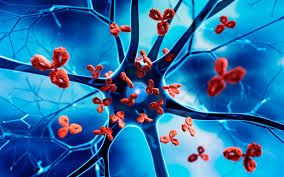Step-by-Step Guide to Your IVF Journey India
Comprehensive Guide to IVF in India: A Pathway to Parenthood
Infertility can be a daunting journey, prompting many couples and individuals to seek effective solutions to achieve their dreams of parenthood. In recent years, India has emerged as a prominent destination for in vitro fertilization (IVF) due to its advanced medical facilities, skilled practitioners, and cost-effective treatment options. This comprehensive guide aims to provide valuable insights into the IVF process in India, outlining each step while highlighting the unique advantages that this vibrant country offers to prospective parents.
Understanding the IVF Process: Key Elements and Benefits
In vitro fertilization, commonly referred to as IVF, is a sophisticated medical procedure designed to assist individuals and couples facing fertility challenges. The process typically involves several stages, including ovarian stimulation, egg retrieval, fertilization, embryo culture, and embryo transfer. Each stage is critical and requires meticulous attention to detail to ensure a successful outcome.
IVF is recommended for various infertility issues, such as advanced maternal age, hormonal imbalances, endometriosis, and male infertility factors. Understanding these conditions and how IVF can address them is essential for individuals considering this route. The treatment not only offers hope but also the possibility of expanding families that might otherwise face challenges in conceiving naturally.
Initial Consultation: Laying the Groundwork for Treatment
The IVF journey begins with an initial consultation with a fertility specialist, where patients are encouraged to share their medical history, previous fertility attempts, and personal goals. This meeting is pivotal, as it allows the healthcare provider to assess the patient’s overall reproductive health and recommend appropriate diagnostic tests. Common evaluations include hormone level testing, ultrasounds, and semen analysis for male partners.
During this consultation, patients should feel empowered to ask questions and voice concerns regarding the treatment process. The fertility specialist will take the time to explain each step of the IVF procedure, helping patients understand what to expect and how to prepare for the upcoming stages. This open communication fosters a trusting relationship, essential for a positive treatment experience.
Step-by-Step Breakdown of the IVF Procedure
1. Ovarian Stimulation: The IVF process begins with ovarian stimulation, where patients receive hormone injections designed to encourage the ovaries to produce multiple eggs. This phase typically lasts 10 to 14 days and requires close monitoring through blood tests and ultrasounds. The objective is to retrieve a sufficient number of high-quality eggs, enhancing the likelihood of successful fertilization.
2. Egg Retrieval: Once the follicles have reached maturity, a minor surgical procedure is performed to retrieve the eggs. This procedure is usually done under sedation to ensure patient comfort. The success of this stage depends on the skill of the healthcare provider and the quality of the equipment used.
3. Fertilization Process: Following egg retrieval, the eggs are combined with sperm in a laboratory setting. There are two primary methods for fertilization: conventional insemination, where the eggs are placed in a dish with sperm, and intracytoplasmic sperm injection (ICSI), where a single sperm is directly injected into an egg. The choice between these methods often depends on individual circumstances and the fertility clinic’s protocols.
4. Embryo Culture: After fertilization, embryos are cultured for several days, allowing for growth and development. Some clinics in India offer pre-implantation genetic testing (PGT) to screen embryos for genetic conditions, ensuring that only the healthiest embryos are selected for transfer. This can significantly enhance the chances of a successful pregnancy, particularly for women of advanced maternal age or those with known genetic disorders.
5. Embryo Transfer: The next phase involves transferring one or more embryos into the uterus. This straightforward procedure typically does not require anesthesia and is performed under sterile conditions. After the transfer, patients are advised to rest briefly before resuming normal activities, although complete bed rest is usually unnecessary.
6. Monitoring and Follow-Up: Approximately 10 to 14 days after the embryo transfer, patients undergo a blood test to check for pregnancy. This waiting period can be emotionally challenging, but many fertility clinics provide support services to help patients cope with the uncertainty. Open lines of communication with the healthcare team are encouraged during this time, as they can provide updates and address any concerns.
Cost Considerations: Affordable IVF in India
One of the most compelling reasons for choosing India as a destination for IVF treatment is the affordability of procedures compared to Western countries. The cost of a standard IVF cycle in India typically ranges from $3,000 to $6,000, which includes various aspects such as medication, consultations, and monitoring. This competitive pricing structure makes it an attractive option for international patients seeking quality care without exorbitant expenses.
Moreover, patients should account for additional costs, including travel, accommodation, and any follow-up treatments that may be necessary. The overall lower cost of living in India can further enhance the affordability of the IVF journey, allowing patients to receive high-quality care without the financial strain often associated with fertility treatments.
Cultural and Lifestyle Aspects: Enjoying India During Your IVF Journey
India is a land of rich culture, diverse landscapes, and warm hospitality. Prospective parents traveling for IVF can immerse themselves in the vibrant local culture while undergoing treatment. From exploring ancient temples to savoring traditional cuisine, patients have the opportunity to experience the beauty and diversity of India, creating lasting memories during their medical journey.
The favorable climate, especially in popular medical tourism cities, contributes to an enjoyable stay. India’s four distinct seasons offer a variety of experiences, allowing patients to plan their visit according to their preferences. Whether it’s enjoying the cool winters or the lush monsoon season, the experience can be both therapeutic and enriching.
Emotional and Psychological Support: Navigating the IVF Experience
The emotional journey of undergoing IVF can be challenging. To support patients, many clinics in India offer counseling services and psychological support throughout the treatment process. Mental health professionals specializing in fertility issues can provide valuable strategies for coping with the emotional ups and downs that often accompany fertility treatments.
Additionally, support groups can facilitate connections among individuals and couples experiencing similar struggles, fostering a sense of community and understanding. By prioritizing emotional well-being, clinics can enhance the overall patient experience, ensuring individuals feel supported and empowered throughout their IVF journey.
Your Journey to Parenthood in India
In conclusion, India stands out as a premier destination for IVF treatment, offering a blend of advanced medical care, affordability, and rich cultural experiences. Prospective parents can navigate their IVF journey with confidence, knowing they have access to top-notch facilities and compassionate healthcare professionals.
As you consider your options for fertility treatment, the unique combination of quality healthcare, affordability, and cultural enrichment makes India an ideal choice. Embracing this journey can lead to not only the fulfillment of the dream of parenthood but also an opportunity for personal growth and exploration in a remarkable country.






